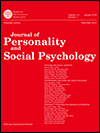Journal of Humanistic Psychology, Ahead of Print. The present study examined the role of attachment anxiety, attachment avoidance, and grit on life satisfaction and romantic relationship satisfaction. We recruited participants (n = 378, mean age = 28.3) using convenience and snowball sampling (i.e., via Facebook and email). The sample consisted of 86 males, 284 females, 2 transgender individuals, and 6 individuals who did not indicate their gender. Participants completed online surveys. Results partially supported our hypotheses that greater attachment anxiety and attachment avoidance resulted in lower life satisfaction scores, but individuals with high grit had lower life satisfaction scores than those with low grit. Additionally, results supported the hypotheses that greater attachment anxiety and attachment avoidance resulted in lower romantic relationship satisfaction scores. However, we posit that grit may work differently in influencing life satisfaction compared with romantic relationship satisfaction, particularly among our younger sample. Implications of findings and directions for future research were also explored.

